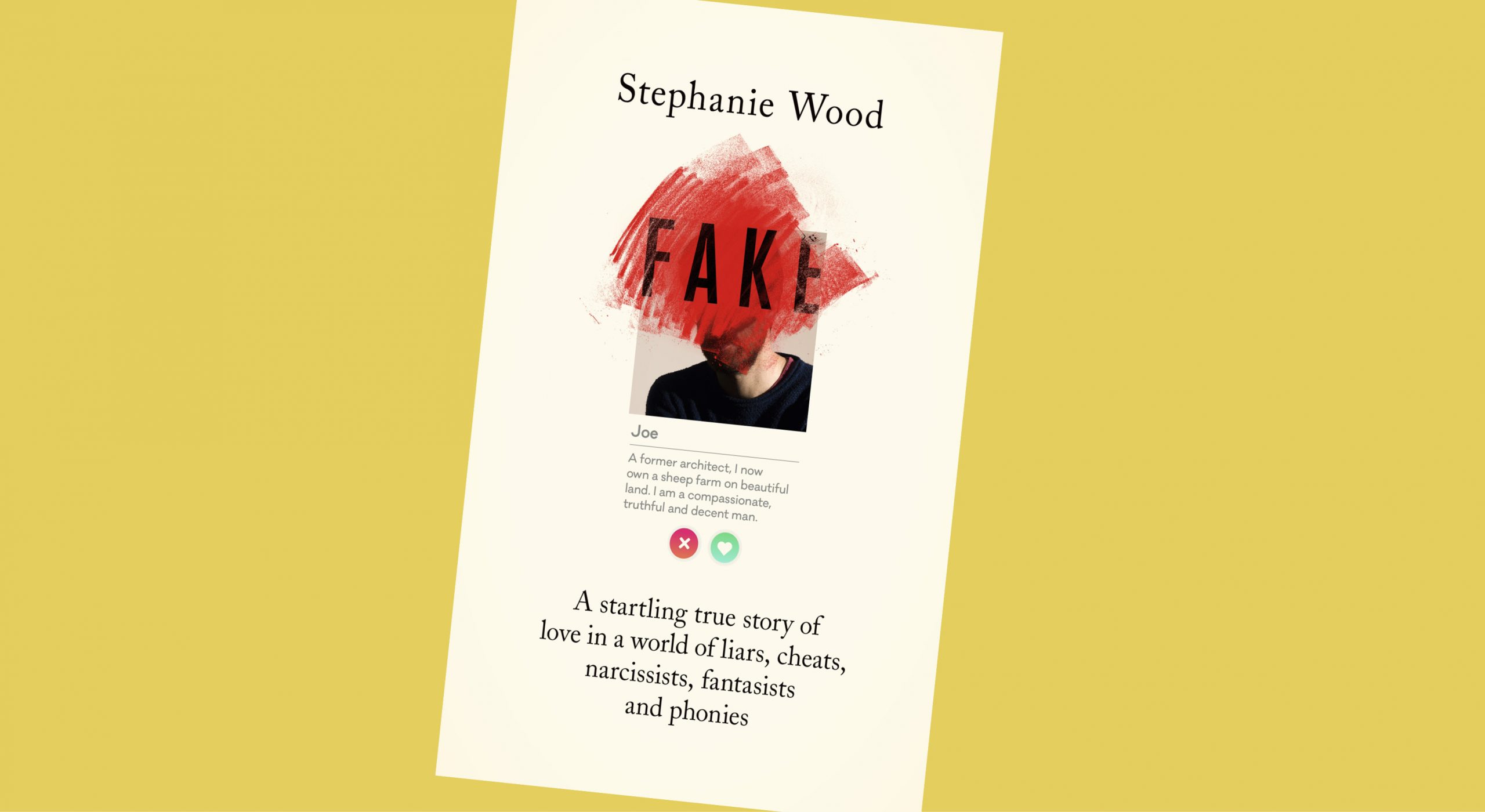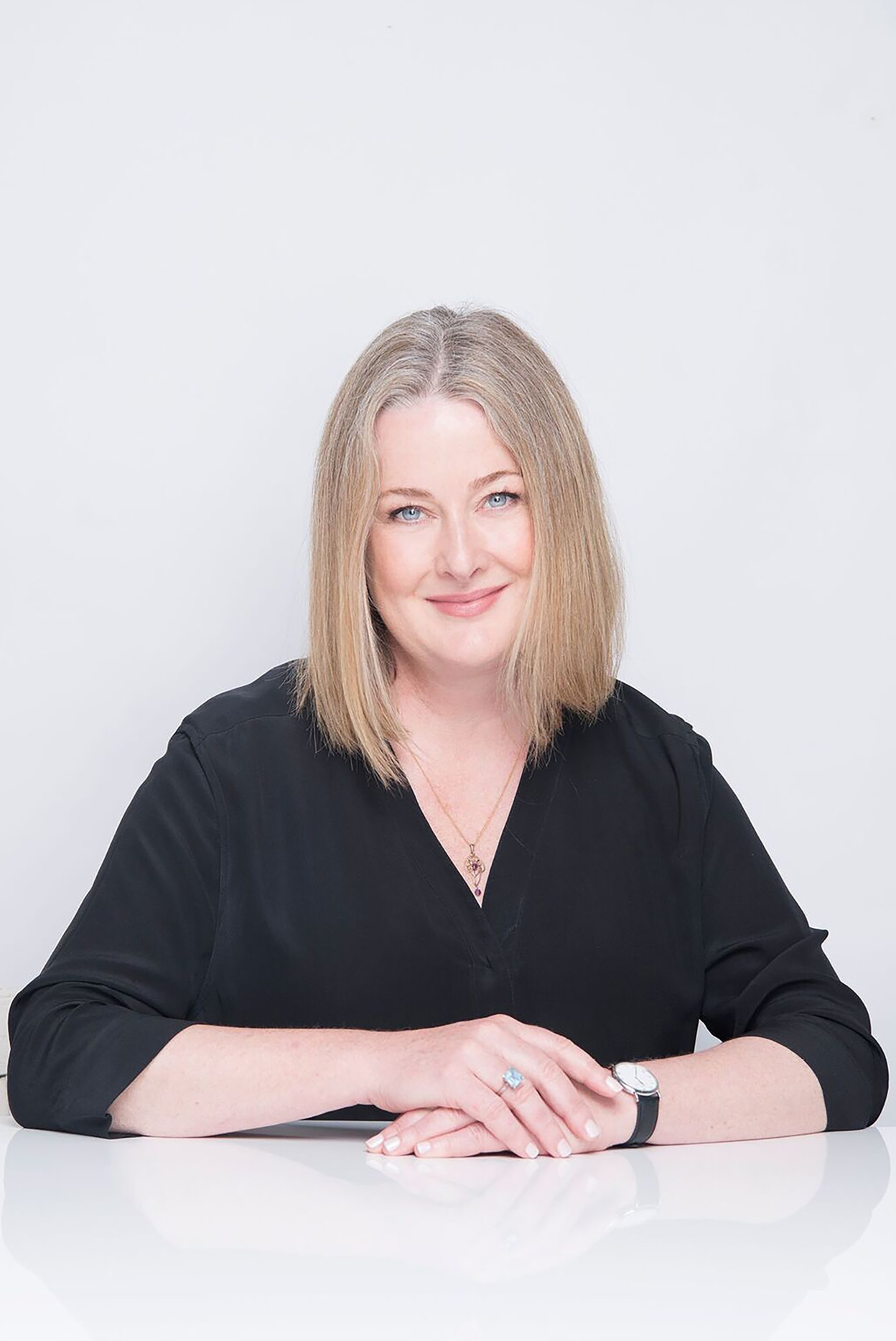When journalist Stephanie Wood met Joe, a ’retired architect’ with a small farm south of Sydney, on a dating website, she quickly fell in love with him. He seemed compassionate, loving and truthful, and soon they were making plans for the future.
But his unreliability, his constant cancellations and his strange and contradictory stories proved too difficult to cope with, and she ended the relationship. Soon afterwards, Stephanie put her investigative and journalistic skills to work – and discovered that ‘Joe’ was not at all who he seemed, and the man she had thought she was in love with simply didn’t exist at all.
This week her book, Fake, which charts her incredible (and riveting) story is released – and she told us her story.
When did you definitively realise that Joe was not who he claimed?
After I dumped Joe, I started to investigate who he really was. On a night in late December 2015, the full catastrophe became apparent: in a private Facebook message I reached out to a woman he had mentioned he knew and asked her about him. “Oh my god,” was her response. “He’s been going out with a friend of mine for three years.”
She gave me a name and I tracked down the “other woman’s” social media profiles which, thankfully, were public. On her Instagram and Facebook accounts I found one photograph after another that proved that Joe had been with this woman from the very first day I met him.
It was an utterly devastating night. I sat in my Sydney study with a friend who lives in Melbourne on the other end of the phone and together we went through the “other woman’s” social media feeds and we were both aghast. I may have been drinking rather heavily! Funnily enough, even though it was shocking and heart-breaking, I was not surprised that he had been with another woman.
Why do you think it took so long to see the truth?
From early on in the relationship, I knew that something was wrong but I couldn’t put my finger on what it was.
And there were so many factors that contributed to the time it took to work out who he really was. As I know now, it is a very natural instinct not to want to find out the worst. Women are told not to be “so picky” about men. and I kept telling myself that.
I poured my anxieties out to my friends and family. “It’s fine,” one friend said, “It’s fine.” My brother and sister-in-law said to stop fussing about it — “you’ll ruin it, if you keep going like this,” they said.
My psychologist, who knows that I have suffered anxiety in certain other relationship situations, heard the stories I told and said she wasn’t seeing red flags – that a man with as many commitments as Joe (half custody of two children, business interests, the farm, a difficult ex-wife) was bound to have unexpected things pop up in his life that could lead to cancellations.
Later, some people said I should get a new psychologist, but I do not blame her for a minute. As I explain in Fake, there are things my psychologist could not know: our sessions did not allow time for the sharing of the minutiae of my relationship with Joe, the to-and-fro of messages in text and word, the nuances of his language and declarations, the details that built up in increments to form a picture, the expression on his face. And I don’t remember the vital signs I forgot to mention to her.
Additionally I had Googled him and found a number of immutable facts that proved elements of his stories and I clung to those facts.
Finally, I was a woman in my late 40s at the time. My last serious relationship had been eight years earlier. I had not had sex in that time. I couldn’t bear to think that I might lose the warmth and intimacy I had found with Joe so I chose not to investigate him further.

You wrote a piece about your experiences in Good Weekend magazine in 2017, which elicited a huge response, especially from women. Tell us about that.
In a sense, my real story started after that Good Weekend article. The response was incredible.
Hundreds and hundreds of messages poured in — from people who thought the article read like it could be a Hitchcock movie, from men apologising for the behaviour of some members of their sex, from a few people who recognised Joe and told me other hair-raising stories about the trail of wreckage he had left through both his business and personal lives. And, most astonishingly, from dozens and dozens of people, mainly women, who wrote to tell me that they too had had nightmarish relationship experiences with similarly vile and cruel characters.
The volume of the stories I heard suggests to me that there is a silent epidemic of appalling and deceitful conduct in way too many relationships.
In Fake, you talk about how you reached out to the “other woman” and then met her?
Three days before the Good Weekend article was published in mid 2017, I rang the woman I call “Kirstie” in Fake.
It was the hardest phone call I have ever made in my life. I was shaking. I was terrified about how she might react. And I didn’t know whether she was still going out with him or not. I even thought perhaps she might have learned of my existence and had forgiven Joe for his behaviour. But she didn’t know about me.
Initially in the phone call, she didn’t believe me; she later would tell me that she had thought I was some mad woman trolling her. But gradually, as I started to explain how I knew that his stories were lies, she came to believe me.
I met her the following day to give her a pre-print of the magazine and that was terrifying too. But by the time of our third meeting, we had become more relaxed with each other and drank cocktails as we dissected Joe’s behaviour and the terrible things he had done. She is a tremendously brave and strong woman, and has cooperated all the way with the book.
You have researched men like Joe. What have you learnt about them?
I cannot, of course, diagnose what mental health issue Joe has, but from my research, it seems clear that men who demonstrate the type of behaviours Joe did are likely to have a personality disorder.
This is an absolutely fascinating subject area that I would love to explore in more detail in stories to come. The science on personality disorders is constantly evolving and there is a move now to remove some of the labels that are attached to personality disorders.
Many people are aware of the personality disorder categories set by the American Psychiatric Association’s DSM-5, the bible for many psychiatrists, including narcissistic personality disorder, antisocial personality disorder (which encompasses people who have psychopathic and sociopathic traits) and borderline personality disorder. But there is a move away from these labels because what research is finding is that people they see with personality disorders often seem to have characteristics from multiple categories; eg, someone who might on the face of it seem to have narcissistic personality disorder might also has characteristics seen in someone who has antisocial personality disorder.
In Fake, you say that sometimes, when it comes to men, you need to rely on more than just instinct. What behaviours and traits should women look out for?
I would say that if you find yourself becoming a detective in your relationship, it’s time to call it quits. Be wary of someone who is always disappearing for work reasons, or who uses excuses that are bizarre or contradictory. Someone who always blames other people for their problems could also be trouble. And now I know that flattery is meaningless. It’s very hard not to be seduced by someone who is saying lovely things to you, but the cliche applies: actions speak louder than words. You want to see things that are evidence of someone’s love, not just hear them. And, as my brother joked this morning to me, “next time, make sure you see his damn sheep”!
Fake, by Stephanie Wood (Vintage, $34.99), is out on July 2.









No Comments